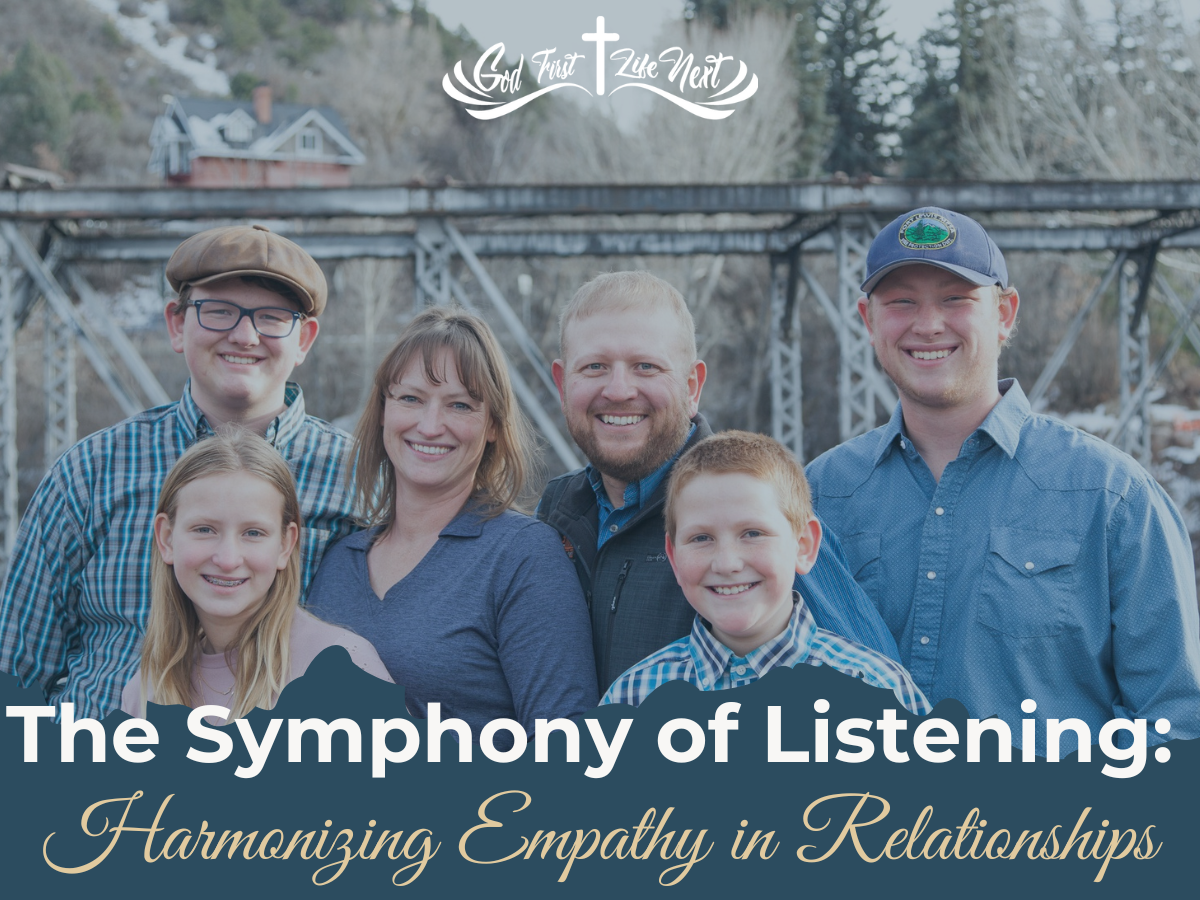“Let everyone be quick to listen, slow to speak and slow to anger, for the anger of man does not produce the righteousness of God.”
James 1:19 (NIV)
Our days are a constant barrage of noise – from the insistent pings of our phones to the relentless hum of daily pressures. In this whirlwind, the art of truly listening often gets swept aside. We hear the words, but we miss the deeper melody – the emotions, the perspectives, and the connections waiting to be discovered beneath the surface.
But remember James 1:19? It offers a powerful anchor in this current of noise: “Be quick to hear, slow to speak, and slow to anger.” This verse guides us towards cultivating empathy in our interactions and rediscovering the transformative power of active listening.
Active listening isn’t just about processing information; it’s about embarking on a journey into the heart of what’s being shared. It’s about deciphering the emotions, perspectives, and needs that simmer beneath the surface of spoken language. It demands our full presence, a conscious effort to truly grasp the essence of the message, not just the words themselves.
Remember the Spark of Connection?
Cast your mind back to a moment when someone truly listened to you. When you felt not just heard but understood. When the echo chamber of your thoughts was replaced by a genuine connection. Recall the profound impact it had on you – the sense of belonging, the deepening of the relationship, and the fostering of a deeper understanding. This, my friends, is the magic of active listening.
This one time I went into my boss’s office to chat about a few issues that came up recently when I visited one of our divisions in East Texas. I walked in and he never looked up from his computer. He said “What’s up Dan” and just kept typing.
Even though he was listening to what I was saying, was he listening to me? The short answer is NO!
Now let’s take a look at how we have reacted in the past to others who want to have a guinea conversation with us. Are we actively listening to them or are we looking at our phones, looking around the restaurant? Watching TV, or whatever. Or are you paying attention to them as they speak and giving them your FULL attention?
From Theory to Practice: A Toolkit for Active Listeners
1. Cultivate Presence: Put away distractions, silence the internal chatter, and make eye contact. Lean in, conveying a genuine interest in what the other person has to say.
2. Embrace the Silence: Resist the urge to jump in with your thoughts or opinions. Create a haven for the speaker to express themselves freely, without the fear of judgment or interruption.
3. Reflect and Acknowledge: Once they’ve finished, take a moment to summarize what you’ve heard and acknowledge their emotions. Validate their experiences, even if they differ from your own.
4. Seek Clarification, Not Confirmation: Don’t shy away from asking clarifying questions if something remains unclear. This demonstrates your genuine curiosity and commitment to understanding their viewpoint.
5. Suspend Judgment: Hold off on forming hasty conclusions or making assumptions based on limited information. Give the speaker the benefit of the doubt and strive to understand the complete narrative before drawing conclusions.
Building Bridges, One Conversation at a Time
By embracing these principles, we cultivate empathy in our relationships, fostering fertile ground for open communication and mutual understanding. Whether with family, friends, colleagues, or even strangers on the street, let’s embody the spirit of James 1:19.
When we listen with empathy and compassion, we not only strengthen the bonds with those around us but also reflect the boundless love and understanding that resides within ourselves. Let’s commit to the practice of active listening, remembering that true empathy blossoms from genuine understanding.
Together, we can serve as agents of connection, building bridges of empathy and understanding wherever our journeys lead us. As we navigate the ever-present noise of life, let’s reclaim the power of active listening and rediscover the profound impact it can have on ourselves, our relationships, and the world around us.
A Prayer for Active Listening and Empathy
Heavenly Father,
As we come before You, we are reminded of Your steadfast love and boundless grace. You are the ultimate example of empathy, and You call us to follow in Your footsteps, extending compassion and understanding to those around us.
Lord, we confess that in the busyness of life, we often neglect the art of active listening. We allow distractions to pull us away from truly hearing the hearts of others. Forgive us for our shortcomings and renew within us a spirit of empathy and compassion.
Grant us the wisdom to heed the words of James 1:19 – to be quick to hear, slow to speak, and slow to anger. Help us to cultivate the discipline of active listening in our relationships, giving our full attention to those who seek to share their joys, sorrows, and struggles.
May we approach each interaction with humility and grace, seeking to understand rather than to be understood. Give us the patience to listen without interruption, the empathy to validate the feelings of others, and the courage to ask clarifying questions when needed.
Lord, we lift up to You all those who long to be heard and understood. Comfort them in their moments of vulnerability and grant them the assurance that You are always listening, always present.
Help us to be instruments of Your peace and reconciliation in a world in need of empathy and understanding. May our lives reflect Your love and compassion, drawing others closer to You and to each other.
In the name of Jesus, who listened with compassion to the cries of the hurting and the broken, we pray.
Amen.
Dan Greer

